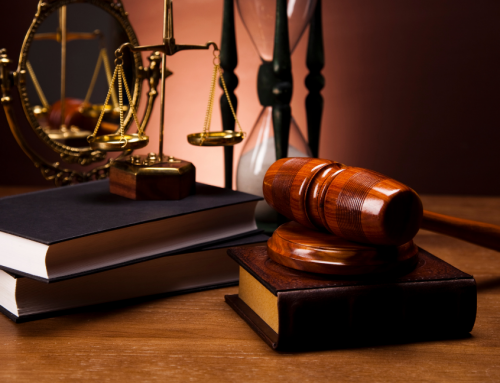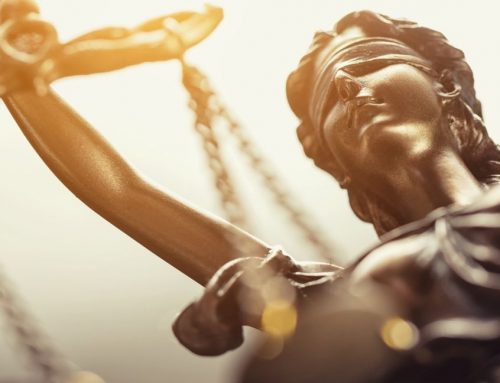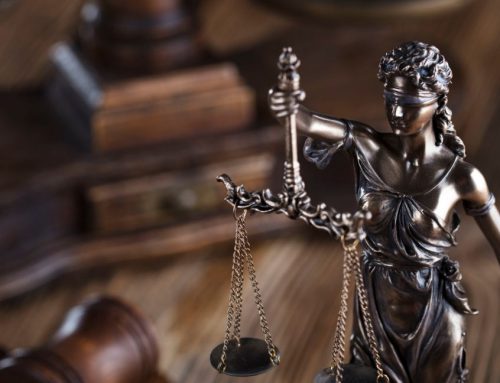Under Criminal Procedure Code B.E. 2499 (CPC), Section 28. The criminal prosecution may be made by a Public Prosecutor or an Injured person. This article aims to give you essential for filing case of criminal by an injured person which is not subject to police investigation or the consent of a public prosecutor. Keep this in mind that in some countries, criminal cases are only initiated by the federal or a state government (Public Prosecutor). It means Thai law allows an injured person or a victim to filling his criminal charge to the Court directly.
Injury Person Meaning!
The Injured Person means a person who has directly received injury by the offense. This includes his/her legal representative or custodian, the ascendant or descendant, the husband or wife, the representatives of a juristic person etc. (Section 2 (4), 4, 5 and 6 of CPC).
Prescription of Filing Case
The criminal prosecution is subject to the prescription, for example 3 months in case of the compoundable offense (criminal offense against personal benefit i.e. fraud, slandering or misappropriation etc). 20 years in case of offense punishable by death, imprisonment for life or twenty years (Criminal Code, Section 95 and 96). If the criminal offense has not happened yet, no criminal case shall be opened. If you are concerned that someone may commit a criminal offence the best is to report the police for prevention.
Criminal Case Jurisdiction
In principle, when an offence has been committed, alluded to or believed to have been committed within the territorial jurisdiction of any Court, it shall be tried and adjudicated by such Court. However, the criminal charge may be filed to the Court where the accused has residence (Section of 22 CPC). When several offences are connected for any reason. Such as several offences have been committed by the same offender, there may be two or more Courts that are equally competent to try and adjudicate a criminal case (Section of 24 CPC).
Criminal Charge Averment
Criminal charge must be contains and clearly clarify of: the name, surname, place of residence, nationality of the Accused; All the acts alleged to have been committed by the accused, all the facts and particulars details regarding, the time and place of such acts, and the persons or things concerned which are reasonably sufficient, to give the accused a clear understanding of the charge; In a charge of defamation, the words, writings, sketches or other matters pertaining to the alleged defamation shall be fully stated or attached to the charge; Also, a reference to the Section of the law which stipulates that such an act constitutes an offense (Section 158 of CPC).
When filing case, if the charge doesn’t correct, the Court may order to correct, dismiss or to refuse to accept the charge depending on level of the error. For example the charge is not giving enough information to understand the charge, the Case shall be dismissed. However, the Injured Person has a right to appeal against such an order of the Court (Section 161 of CPC). So, preparing the criminal charge is very importance when filing case because the case may be dismissed by averment mistake.
Preliminary Examination
If the charge is correctly prepared, the preliminary examination dated will be arranged about 3 months after filing criminal case. On this date, the injured person must provide the court with preliminary evidence to prove that the Accused had committed a criminal offense (Section 162 of CPC). The Accused may appoint a lawyer to cross an examination (Section 165 of CPC). The injured person isn’t required to prove the offense without reasonable doubt. In other words, the standard of proof of the preliminary examination is lower than the hearing examination.
If the preliminary evidence satisfied that the Accused might have committed the Criminal offense stated under the charge. the case will be accepted. If not, the case will be dismissed. Any dishonestly charge or any charge aimed at damages to the Accused or another illegal benefit, misrepresentation, the case shall be dismissed (Section 161/1 of CPC).
Preliminary Decision
A month after preliminary hearing dated, the Court shall make an order to Accept or Not Accept the Case. The Court orders to accept the case is final, the Accused has no right to appeal, the trial should be continued. The Accused must attempt to the Court. If not, the Court shall issue the Summons or Arrest-Warrant to the Accused for trial.
If the Court orders to not accept the case, the injured person has a right to appeal the order to the Court of Appeal (Section 169 and 170 of CCC).
Criminal Hearing and Burden of Proof
If the Accused does not attend the Court, the Arrest-Warrant to the Accused will be issued. The case will be opened again when the accused has arrested. When the Accused attends the Court and Pleads Guilty, the Court may give judgment without taking any further evidence. However, in case of Pleads Guilty and the minimum punishment of the case is from five years upwards and in case of Pleads NOT Guilty, the Burden of proof belongs to the injured person. The standard of proof shall be satisfied without a reasonable doubt that the Accused is guilty (Section 176, 192 and 227 of CPC). documentary or oral evidence which is likely to prove the Guilt of the accused, is admissible, provided. But it shall not be obtained through any inducement, promise, threat, deception or other unlawful means (Sections 226 of CPC).
Rights of Appeal
Thailand has 3 levels of Court of Justice. Court of first instance, Court of appeal and Supreme court (final court of appeal). Basically After the judgement of the lower Court the party has a right to appeal to the higher court within 1 month from the date of judgement (extendable by the court order). The party has a right to appeal both questions of legal and questions of fact.
However, some criminal case can’t appeal. For example; no appeal shall be against the judgment on the questions of ‘fact matter’ in the case where the maximum rate of imprisonment does not exceed three years or fine not exceeding sixty thousand bath (Section 193, 193 bis and 198 of CPC).The procedure of the Supreme Court is mostly the same with the Court of Appeal. But there is more prohibition of appeal. The Supreme Court Judgment is final.
IMPORTANCE NOTE: Theoretically, the High Courts both the Court of Appeal and Supreme Court may have an order for hearing but never seen in reality practice. Therefore, all evidence should be perfect when the first hearing at the Court of first instance. Each court trials may take between 6 months to 1 year depending on many factors. No Courts Fee for Criminal Lawsuits.
Conclusion
Well understanding about the fling case of criminal trials saves costs and time. Also, some error may create problems. Bette to have professional to handle. If you need help! in a criminal matter both prosecution and defense, lower and higher Court.
If you are in need of litigation problems or for further information, just visit dispute resolutions page or feel free to contact us at anytime, we handling the cases in Phuket and the whole Thailand.




